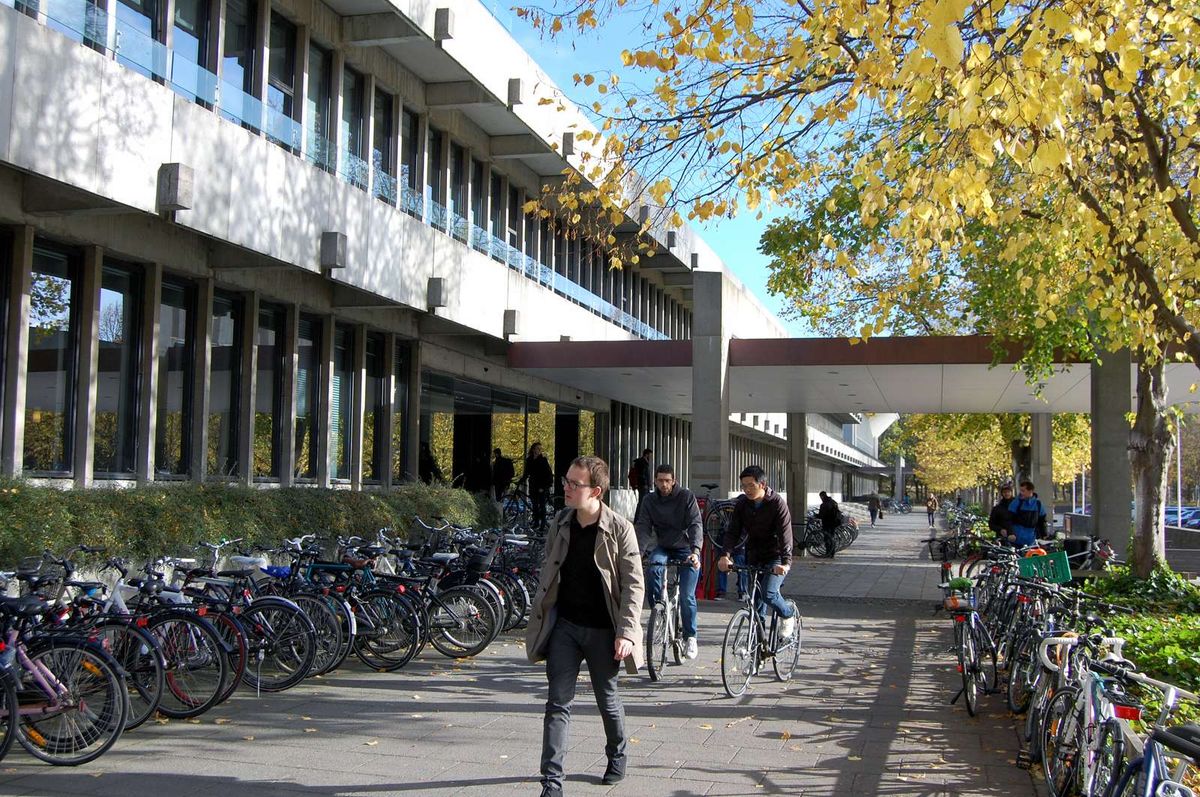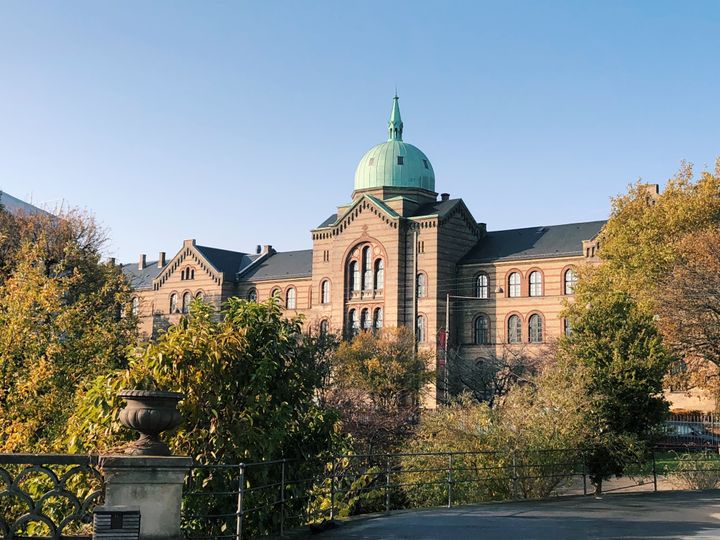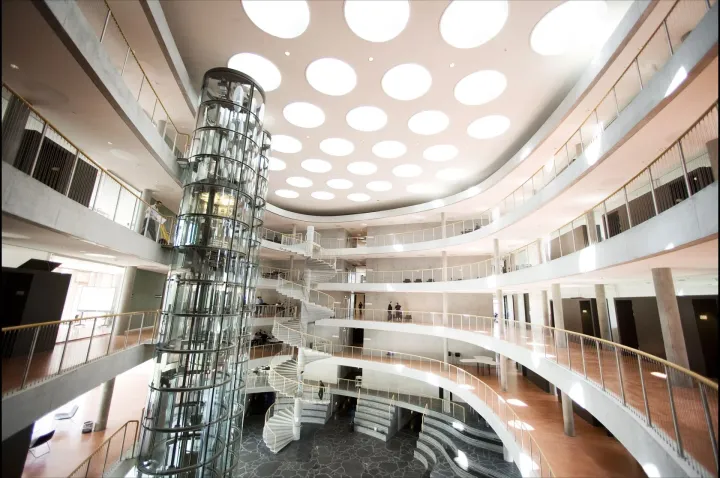Answering All Your FAQs about the Technical University of Denmark
Discover admissions, programs, campus life, and more at the Technical University of Denmark. Get answers to all your FAQs and embark on your academic journey with confidence!

The Technical University of Denmark (DTU) emerges as a leading institution for future engineers and tech visionaries from across the globe, bringing together their unique queries and aspirations. This blog aims to tackle common questions and concerns from both prospective and current DTU students about their academic pursuits.
We'll cover the admissions process, delve into the extensive range of engineering and tech-oriented programs offered, and share tips for enhancing your experience on campus. Our goal is to equip you with the knowledge and advice needed to confidently navigate your educational journey and fully embrace your time at DTU.
Looking for housing for students in Denmark? Check out our listings for shared accommodation on Hemavi!
What programs are available for international students at the Technical University of Denmark?
The Technical University of Denmark (DTU) offers a variety of programs for international students, spanning undergraduate to doctoral levels. Here's an overview of the options available:
Undergraduate Programs
DTU provides an English-taught Bachelor of Science (BSc) program in General Engineering, designed to offer a solid foundation in mathematics, physics, and chemistry, while teaching students to apply these disciplines to solve real-world problems. This is the primary undergraduate program available in English, aiming to develop broad engineering competencies. Although DTU offers a range of undergraduate programs, most are taught in Danish, but there are numerous individual courses available in English.
Master of Science (MSc) Programs
For those looking at postgraduate education, DTU boasts an impressive array of MSc programs, covering disciplines such as Applied Chemistry, Architectural Engineering, Autonomous Systems, Bioinformatics and Systems Biology, Biomaterial Engineering for Medicine, Biomedical Engineering, Biotechnology, Business Analytics, Chemical and Biochemical Engineering, Civil Engineering, and many more. These programs are tailored to equip students with the necessary skills and knowledge to excel in their chosen fields, incorporating the latest research and innovation trends.
Additionally, DTU offers joint international programs like Business Administration and Bioentrepreneurship, Quantum Information Science, and Health and Informatics, in collaboration with other prestigious institutions. This provides students with a unique opportunity to gain a diverse and comprehensive education that spans multiple disciplines and cultures.
For more detailed information on specific programs, admission requirements, and application processes, visit DTU's official website.
What are the language requirements for these programs?
For Master's (MSc) Programs:
Applicants need to demonstrate English language proficiency that is comparable to the English B-level from a Danish upper-secondary school. The following tests and minimum scores are accepted:
- IELTS (Academic): 6.5 (either computer-based, paper-based, or Online)
- TOEFL iBT: Internet-based, Special Home Edition, or Paper Edition with a minimum score of 88
- C1 Advanced / Cambridge Advanced English (CAE): 180
Additionally, applicants who have completed a minimum 3-year undergraduate degree or a 2-year graduate degree in English in certain countries (Australia, Canada, Ireland, New Zealand, the United Kingdom, and the USA) may be exempt from submitting a language test. There are also specific exemptions for Nordic citizens and applicants with certain qualifications.
For the BSc in General Engineering:
Applicants must fulfill both general and specific admission requirements, including proficiency in English. For international applicants, this involves providing evidence of English proficiency through recognized tests such as:
- IELTS Academic or IELTS Online: Minimum score of 6.5
- TOEFL iBT, TOEFL iBT Special Home Edition, or TOEFL iBT Paper Edition: Minimum score of 88
- C1 Advanced (Cambridge Advanced English) / C2 Proficiency (Cambridge English Proficiency): Minimum score of 180
Exemptions from these English test requirements apply to applicants with certain qualifications from English-speaking countries or those with a Danish, Nordic, IB, or European Baccalaureate, among others.
It's important for all applicants to ensure that their English language test scores are valid at the time of application and to follow the specific instructions for submitting these scores to DTU. For the most current and detailed information, refer to DTU's official admissions pages for both undergraduate and Master's programs.
What is the application process for international students applying for the Technical University of Denmark?
The application process for international students applying for a Master's program at the Technical University of Denmark (DTU) is detailed and primarily digital. Here is an overview of all the steps required:
For all applicants
- Pre-Mapping: Some MSc programs at DTU may require completing a pre-mapping template as part of the application. This is particularly the case for applicants holding a qualifying degree acquired in Denmark.
- Digital Application: The application is to be submitted entirely online through DTU's application portal, DANS. Hard copies of documents are not accepted.
- Application Form: Applicants can choose up to four programs, prioritizing them in their application. More than four applications will result in automatic cancellation of the lower priorities.
- Submission: Ensure all provided information is accurate before submission. A receipt will be available on DANS once the application is submitted.
- Follow-up: Applicants can check the status of their application, messages, and, if applicable, accept an offer of admission through DANS.
Important Dates and Deadlines
- For Non-EU/EEA Applicants: The application portal opens on November 15, with a deadline of January 15. All necessary documentation, including language test results (if not yet taken, at least the test date), must be submitted by this deadline, with the final deadline for official language test results being May 1.
- For EU/EEA Applicants: The application portal also opens on November 15, with the first round of admission deadline on March 1. Similar to non-EU/EEA applicants, language test results must be submitted at the time of application, with the final deadline for official language test results being August 15.
It's crucial for prospective students to closely follow DTU's official guidelines and deadlines to ensure a smooth application process. For detailed information, including the required documents and specific instructions for applicants with degrees acquired outside Denmark, you should refer to:
Are there scholarships or financial aid options available for international students at Technical University of Denmark?
The Technical University of Denmark offers scholarships primarily to Ph.D. students interested in research collaborations. These scholarships, which may include both full and partial funding, are aimed at applicants demonstrating excellent academic achievements. The benefits align with the collective agreement of the Danish Confederation of Professional Associations, with allowances negotiable and scholarships typically lasting three years. Additionally, all non-EU/EEA candidates admitted to Danish programs are automatically considered for the Danish Government Scholarship, which may cover full or partial tuition fees and/or living expenses.
What housing options are available at Technical University of Denmark for international students?
International students at DTU can find housing through the DTU International Accommodation Office or by searching on their own. The Accommodation Office assists new full-degree international students in finding affordable housing for their first year. Students can apply for accommodation upon accepting their offer of admission, with various options available. Alternatively, students may explore housing through websites offering apartments, dormitories, and rooms in the Copenhagen and Lyngby area.
One resource that can help you find housing in Denmark is Hemavi – make sure you create a thorough user profile to get matched with compatible roommates!
What student clubs or organizations can I join at an international student at the Technical University of Denmark?
At DTU, international students have the opportunity to join a wide range of clubs and associations, including cultural and social organizations like the Polyteknisk Forening (PF), which is the oldest student organization in Denmark, the Erasmus Student Network (ESN) for supporting international students, and specialized groups such as the Venture Cup for entrepreneurs, IAESTE for those interested in international exchange, and the Wind Energy Student Association (WESA). There are also clubs focused on sustainable food, consulting, engineering competitions, and women in engineering.
What support services are available for international students at the Technical University of Denmark?
DTU offers a comprehensive support system for international students, including guidance on study programmes, course planning, credit transfer, and navigating DTU's rules. The International Admissions Office assists with application processes, while the International Student Service provides advice on exchange options, and administrative and cultural issues. Practical matters such as student ID cards, course registration, and IT access are handled by the Study Administration. Additional support includes guidance on SU rules and applications, special educational support (SPS) for students with functional impairments, and career counselling through the DTU Career Centre.
What is the cost of living for a student in Denmark?
Living costs for an international student in Denmark can vary based on lifestyle, but on average, a single student might spend around $1,168.5 (8,063.7 DKK) per month excluding rent. This estimate covers expenses like food, transportation, and other essentials, but actual costs can fluctuate depending on personal spending habits and accommodation choices.
Do I need a visa or residence permit to study in Denmark?
Yes, international students from outside the EU/EEA and Switzerland need a visa or residence permit to study in Denmark. The specific requirement—whether it's a visa for short-term stays or a residence permit for longer studies—depends on your nationality and the duration of your stay. It's crucial to apply well in advance of your intended start date due to processing times.




Comments ()